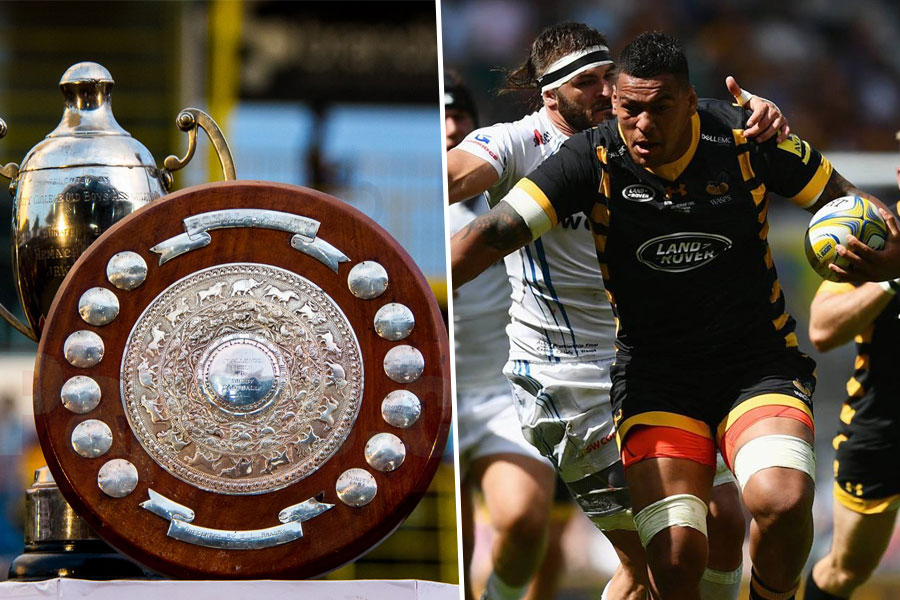Watching the Exeter Chiefs string together 34 phases in the build up to their Premiership win over the weekend was pretty exhilarating.
The fact that the Wasps didn’t concede a penalty in all those phases was also an extraordinary performance. But watching the Premiership final, I was reminded, glaringly, what a cruel game rugby can be.
A devastated Nathan Hughes watched the ball sail through the posts after he conceded a penalty in the 78th minute of the game after being outstanding in attack and defence for the 77 minutes prior to that. The Chiefs tied it up and won with a scrum penalty in extra time, a scrum penalty which came, because the Wasps chose to send back their substituted prop and play without a tighthead to avoid uncontested scrums. It was sporting positivity that unfortunately didn’t get rewarded on the day. Spare a thought for Hughes though, who was monstrous with ball in hand, and equally wall-like in defence. All it takes is one mistake at a crucial time, a refusal to heed JP Doyle’s call to ‘let it go eight’ and suddenly you’re a runner-up and not a champion.
Trinity College tasted much the same medicine last week when they made some crucial errors to allow Royal seal the league title up in Pallekalle. A much improved Royal side, were almost unrecognizable from the first round to the second. A side which began the season with plenty of holes in their wider defensive channels seemed to understand themselves much better in the second half of the season. The Guneratne Trophy win against STC seemed to herald their arrival as genuine contenders. Trinity began the season with a bang against Wesley, but since then, lost several key players to injury and seemed to spiral into a pressure-driven dissipation.
Royal’s outstanding run of results led them to a deserved league title. One that looked almost impossible with their shaky start against St. Joseph’s and narrow wins over Dharmaraja and St. Anthony’s. In a way, that start probably strengthened Royal’s resolve, while Trinity’s start made them a little complacent.
Lote Raikabula, despite being a World Series winning sevens player, is unlikely to have found himself – or expected to find himself – in the kind of cauldron that Pallakelle turns into on Bradby day. While skills and game plans are important, coaches also need to focus on the kind of discipline which prevents errors like crooked throws and errors on touch kicks. These are mistakes that happen after a stoppage, without any opposition player pressuring an error. Trinity were guilty of several unforced errors which cost them the game. They were also guilty of allowing their intensity to spill over into aggression, an aggression that saw them running at the man instead of letting the ball do the work as they did for their first try.
They paid the price for being psyched out, instead of being psyched up – a balance that previous coach Neil Footie had mastered. No surprise then, that Irish Lion Eric Miller, and All Black sevens star Raikabula emerged second best to Sanath Martis who in many ways is as street smart as Footie was for his four years in charge.
Imagine my surprise then when I saw Trinity keeping the ball in hand for as long as they did. Yes, the opening exchanges are always good to show the opposition you mean business, but the only way this Royal pack is going to be demoralized is if you send them backwards constantly. It’s as if Trinity had not even considered kicking as an acceptable tactic. Royal on the other hand knew what Trinity would try to do and matched them with some ferocious midfield defence.
With the kind of power in the forwards that Royal possess and then the driving maul which is their piece de resistance, the only way try and play them is by dominating field position. By forcing them to play in the wrong half of the pitch. I often find that foreign coaches, who come from much cooler climes where rugby is a winter sport, don’t like to kick. However, in Sri Lankan rugby it is a crucial part of the game. What is baffling is that even after several months, some coaches don’t cotton on. They do deserve some sympathy though. Unless one referees the driving maul like JP Doyle did so astutely in the Premiership final, the defending team have no chance. The fact that Sri Lankan referees go mute when they are expected to say ‘that’s once’ or ‘use it now’ make life almost unlivable for most teams, especially when they are playing Royal. But even though Trinity should have got more than one turnover last Saturday, coaches need to come up with a Plan B.
After the debacle against Isipathana, where the Royal full-back was all at sea, Shaqir Naufer has emerged as one of the Royalists’ best players when he was asked to play there. His place kicking takes the pressure off captain Askey and adds tremendous value to the team. That Trinity have not even attempted to pressure him consistently, is another trick the Lions seem to have missed. Kicking and chasing is a facet of the game that only Royal and Isipathana seem to have got right. And it is not surprise that they are deservedly at the top of the leaderboard.
Trinity have to ask themselves whether their high profile coaches are the way to go. Neil Footie was certainly not a British Lion nor an All Black Sevens player. But he brought home some Bradby Shields. After waiting 30 years for a league title they will be pretty gutted to cough up the Shield for the third year in a row.
Royal won this league and have taken a step towards the Bradby on the training paddock. Not in the 80 minutes that constitute a rugby match. Other teams will do well to appreciate the difference.














